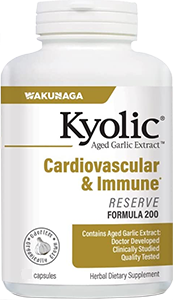- Science & Research
- Science News
- Newsletter
- 2011
- December 2

Newsletter
Newsletter
Omega 3 Reduction In Arrhythmia Fatal Heart Attack Risk In Diabetic Patients
Small increase in daily omega-3 results in large reduction in arrhythmia-related events and fatal heart attack risk in diabetic patients
Friday, December 2, 2011. An analysis of a clinical trial published in the December, 2011 issue of the journal Diabetes Care reveals a reduction in the risk of ventricular arrhythmia-related events and fatal myocardial infarction (MI) among diabetics who received low doses of the omega-3 fatty acids eicosapentaenoic acid (EPA), docosahexaenoic acid (DHA) and alpha-linolenic acid (ALA). Ventricular arrhythmias are the main cause of cardiac arrest and sudden death, and frequently necessitate defibrillator implantation. The subjects included men and women with a history of heart attack within the decade prior to enrollment in the Alpha Omega Trial, which sought to determine the effects of EPA, DHA and ALA on fatal coronary heart disease and ventricular-arrhythmia related events. While a benefit for omega-3 was not confirmed in this population, the current analysis sought to determine the effects in a subgroup of 1,014 diabetic patients, aged 60 to 80 years. Participants were randomized to receive margarine that provided 223 milligrams EPA and 149 DHA per day, 1.9 grams ALA per day, both EPA/DHA and ALA, or no additional omega-3 fatty acids for 40 months. Compliance was assessed by analysis of plasma fatty acids at the beginning of the study, at 20 months, and at the trial's conclusion. Participants were followed for clinical events, including fatal coronary heart disease (defined as mortality from heart attack), and fatal and nonfatal ventricular arrhythmia-related events. Twenty-nine patients developed ventricular arrhythmia-related events and 27 had fatal heart attacks over follow-up. The Dutch research team observed an 84 percent lower risk of ventricular arrhythmia-related events and a 72 percent lower risk of combined ventricular arrhythmia-related events and fatal coronary events in participants who received both EPA/DHA and ALA compared to those who consumed unenhanced margarine. The authors remark that EPA and DHA may act as binding sites for peroxisome proliferator-activated receptor gamma, which plays an important role in insulin sensitivity regulation. Other research suggests that fish oil, a popular source of omega-3, may increase the expression of glucose uptake genes, thereby lowering glucose levels. In addition, the omega-3 fatty acids have anti-inflammatory properties that may help reverse insulin resistance according to the results of laboratory studies. "Low doses of omega-3 fatty acids reduced the risk of ventricular arrhythmia–related events in post-MI patients who also have diabetes," the authors conclude. "The results of more trials on the effect of different omega-3 fatty acids are needed before definitive conclusions can be drawn on their role in the etiology of ventricular arrhythmias and fatal coronary heart disease." | ||||||||||||||||
| ||||||||||||||||
| ||||||||||||||||
 | ||||||||||||||||
| ||||||||||||||||
| ||||||||||||||||
The latest news on aging, nutrition, and vitamins
Lab
Testing
How Life Extension lab testing works










